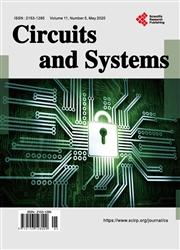Information Driven Data Gathering for Energy Efficient Wireless Sensor Network
引用次数: 2
Abstract
Large scale dense Wireless Sensor Networks (WSNs) have been progressively employed for different classes of applications for the resolve of precise monitoring. As a result of high density of nodes, both spatially and temporally correlated information can be detected by several nodes. Hence, energy can be saved which is a major aspect of these networks. Moreover, by using these advantages of correlations, communication and data exchange can be reduced. In this paper, a novel algorithm that selects the data based on their contextual importance is proposed. The data, which are contextually important, are only transmitted to the upper layer and the remains are ignored. In this way, the proposed method achieves significant data reduction and in turn improves the energy conservation of data gathering.高能效无线传感器网络的信息驱动数据采集
大规模密集无线传感器网络(WSNs)已逐步应用于不同类型的应用,以解决精确监测的问题。由于节点密度高,多个节点可以同时检测到空间和时间相关信息。因此,可以节省能源,这是这些网络的一个主要方面。此外,通过利用这些相关性的优点,可以减少通信和数据交换。本文提出了一种基于上下文重要性选择数据的新算法。具有上下文重要性的数据只传输到上层,而其余的数据则被忽略。这样,该方法实现了显著的数据缩减,从而提高了数据收集的节能性。
本文章由计算机程序翻译,如有差异,请以英文原文为准。
求助全文
约1分钟内获得全文
求助全文

 求助内容:
求助内容: 应助结果提醒方式:
应助结果提醒方式:


